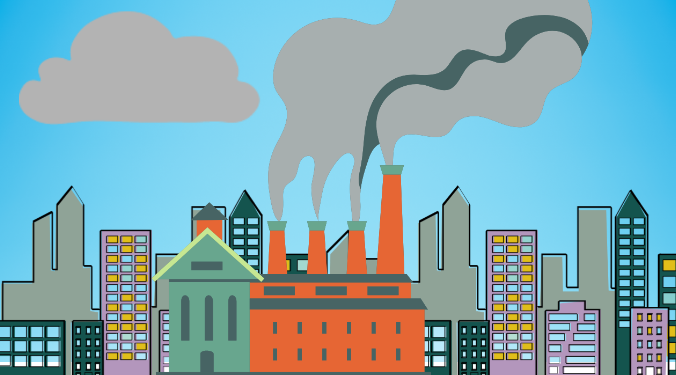MVP Southgate, T15 Reliability Project and Southeast Supply Enhancement are three new natural pipeline projects proposed across North Carolina. Each of these projects will be constructed by companies that claim that building these pipelines will help supply the growing demand for cleaner energy in North Carolina to replace less effective energy sources, such as coal. However, some criticized this decision since natural gas is a greenhouse gas that contributes carbon emissions to the atmosphere.
When natural gas is extracted and used as fuel to power homes, the combustion of chemicals produces gases known as nitrous oxides (NOx). When nitrous oxides are introduced into the atmosphere, they can circulate with other atmospheric chemicals and form photochemical smog, which lowers air quality and may cause harm to living organisms. The pipes also could directly leak natural gas into the atmosphere, which could increase the rate of anthropogenic climate change. Additionally, the natural gas could contaminate the soil and water if pipes are not properly constructed.
Research indicates that newly created pipeline projects can add more fuel to the fire, leading to further environmental concerns. Each project was held in different counties in North Carolina and some will extend up to 45 miles, while others will enhance existing pipelines or further improve previous infrastructure.
Many scientists disagree with the use of pipelines and instead promote the use of alternative energy resources that have lower emission outputs, such as windmills, hydroelectric dams and solar panels. These clean energy resources obtain energy through renewable resources such as the sun, wind and water and affect surrounding environments to lesser extents. Currently, compared to fossil fuels, clean energy is less efficient and is not competitive with the amount of energy that is needed to support the average energy usage requirement of a household.
However, as innovations develop, the technology associated with clean energy may continue to develop, and experts say that clean energy may surpass the efficiency of nonrenewable resources and outcompete conventional sources. However, much of this research is still in the early stages, such as at research universities or national laboratories.
As construction of the pipelines starts, environmentalists and scientists continue to develop cleaner sources of energy.















































































